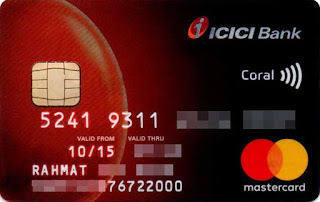LoanBaazar is excel in offering Home Loan, Mortgage Loan, Business Loan, Personal Loan, Education Loan, Credit Cards, SME Working Capital Loan and Equipment Finance at the most competitive rates from all leading Banks and NBFCs.

The Reserve Bank of India (RBI) has recently proposed a new initiative that would allow customers to change their preferred debit, prepaid, or credit card networks. In a draft circular issued by the RBI, it is stated that customers will have the option to choose their desired card network or issuer instead of being limited to their current issuance bank or finance company.
The proposed rules apply to both banks and non-banking financial companies that issue credit cards, debit cards, or prepaid cards. The circular emphasizes that card issuers like Visa, MasterCard, and RuPay should offer cards across multiple networks and provide customers with the choice to select any preferred network.
Starting from October 1, the RBI’s proposal mandates credit card issuers to give customers the option to choose their network. This means that customers will be able to switch from one network to another. Currently, Indian customers have access to five credit card networks, including Visa, MasterCard, RuPay, American Express, and Diner’s Club. However, from October 1 onwards, customers will have the flexibility to switch to any network they prefer.
To ensure flexibility and promote competition, the RBI’s draft circular also restricts card issuers from entering into agreements that limit their ability to collaborate with other card networks. These requirements will apply to existing agreements during amendments, renewals, and fresh agreements executed after the circular’s effective date.
Customers will have the choice to exercise this option either during the initial issuance of the card or at a later stage, as specified by the RBI. These changes will take effect from October 1, and stakeholders are invited to provide feedback by August 4, according to the RBI.
The RBI aims to address the lack of customer choice in card network offerings. Currently, some banks require customers to accept specific card networks that may not align with their preferences. The RBI has observed that the existing arrangements between card networks and issuers do not provide customers with sufficient choice. In 2021, the RBI imposed a temporary ban on Mastercard, American Express, and Diners Club from issuing new debit, credit, or prepaid cards due to noncompliance with local data storage regulations. The ban was lifted in June 2022 after the companies complied with the regulations.
To facilitate credit card portability, the RBI’s proposed guidelines state that the option should be included in existing agreements or introduced during renewals or in fresh agreements executed after the circular’s issuance date. Card issuers and networks are required to adhere to these guidelines in both existing and future agreements.
This initiative holds significance for the Indian market as credit card outstanding has experienced substantial growth in FY23. According to RBI data, credit card outstanding has reached Rs 2 lakh crore, marking a 29.7% year-on-year increase. As of April 2023, banks have issued 8.65 crore credit cards, with monthly credit payments exceeding Rs 1 lakh crore and card payments totaling Rs 1.32 lakh crore in April 2023.
The introduction of customer choice in selecting card networks is expected to invigorate the segment and foster competition among international and domestic network companies.
Industry experts have weighed in on the proposal, believes that the RBI’s move will provide consumers with wider choices and end exclusive issuance arrangements between card networks and leading issuers. Aditya Agarwal, Chief Business Officer and Co-founder of LoanBaazar, predicts that implementation and compliance costs for banks will increase, while smaller networks like RuPay may gain more banks as issuers.
Dr. A V Arunkumar, Professor at the School of Business, RV University, Bangalore, highlights concerns about high interest rates, grievance redressal, and transparency, noting that increased competition may address these concerns at the expense of card issuers and networks’ profitability.
In summary, the RBI’s proposal for credit card portability aims to empower customers by allowing them to switch card networks. The initiative seeks to enhance competition and provide customers with a wider range of choices, thus addressing concerns and fostering growth in the Indian credit card market.
Loan Bazaar, Loanbazaar, Loan Bazaar, Loanbazaar, Loan Bazaar, Loanbazaar, Loan Bazaar, Loanbazaar,
Loan Bazaar, Loanbazaar, Loan Bazaar, Loanbazaar, Loan Bazaar, Loanbazaar, Loan Bazaar, Loanbazaar, Loan Bazaar, Loanbazaar, Loan Bazaar, Loanbazaar, Loan Bazaar, Loanbazaar, Loan Bazaar, Loanbazaar, Loan Bazaar, Loanbazaar, Loan Bazaar, Loanbazaar, Loan Bazaar, Loanbazaar, Loan Bazaar, Loanbazaar, Loan Bazaar, Loanbazaar, Loan Bazaar, Loanbazaar, Loan Bazaar, Loanbazaar, Loan Bazaar, Loanbazaar, Loan Bazaar, Loanbazaar, Loan Bazaar, Loanbazaar, Loan Bazaar, Loanbazaar, Loan Bazaar, Loanbazaar, Loan Bazaar, Loanbazaar, Loan Bazaar, Loanbazaar, Loan Bazaar, Loanbazaar, Loan Bazaar, Loanbazaar,